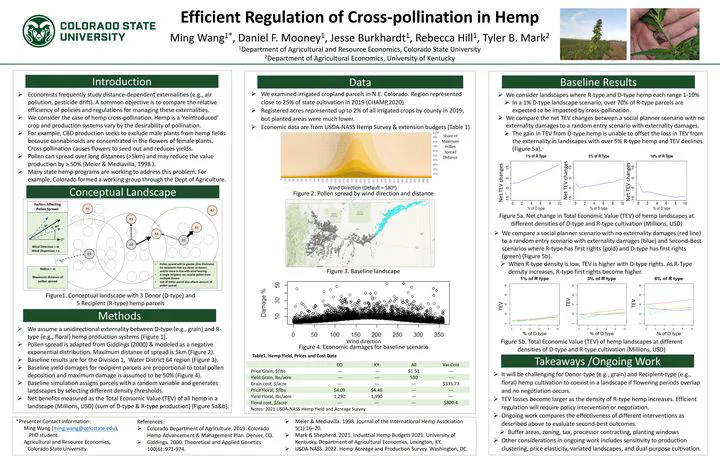Efficient Regulation of Cross-pollination in Hemp
Jul 30, 2022· ,,,,·
1 min read
,,,,·
1 min read
Ming Wang
Daniel F. Mooney
Jesse Burkhardt
Rebecca Hill
Tyler B. Mark

Abstract
Hemp pollen presents a challenge for developing localized yet diverse cannabis cultivation due to the potentially harmful effects of cross-pollination between strains grown for different end products. For instance, the pollination of hemp grown for cannabinoids like Cannabidiol (CBD) by hemp grown for grain could result in a financial loss (DeDecker). Past research shows that essential oils in cannabis flowers decreased by as much as 50% following cross pollination. Understanding the risk of cross-pollination and the economic efficiency of policies recommended to manage these risks. We model the problem as a distance-dependent externality where adverse effects are larger for closer hemp production activities and smaller for more distant activities (Parker and Munroe). Our research relates to a subset of this work examining the economic efficiency of first- and second-best policy options to regulate the externality. We contribute to this literature by presenting a conceptual framework, efficiency metrics, and case studies that empirically explore alternative policy options for regulating hemp pollen in variated landscapes typical of irrigated agriculture in the arid U.S. West and the rainfed agriculture in the humid U.S. East.
Type
Presented at 2022 AAEA Graduate Student Extension Competition - Clarifying Opportunities for Hemp Stakeholders: Identifying Needs and Developing Research Informed Outreach for an Emerging Industry.